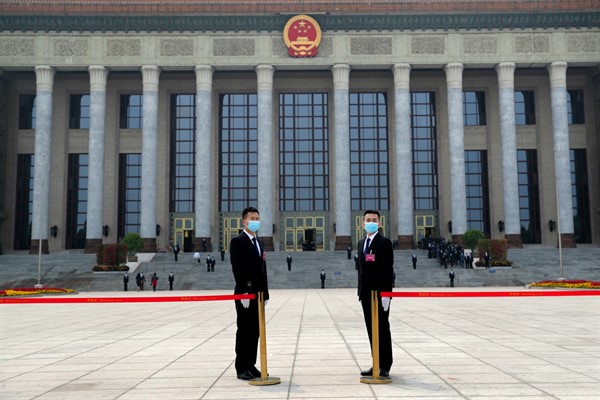From the moment Chinese leaders belatedly recognized that a deadly new pathogen was spreading rapidly in the city of Wuhan and beyond, it became apparent that the coronavirus would play a defining role in shaping the image and power of China and its regime for years to come. Beijing has been working overtime ever since not just to contain the virus at home, but to shape the narrative of the pandemic there and abroad, seeking to portray China and its rulers as wise, efficient, powerful and generous. China’s ultimate goal is to emerge from this crisis as a more powerful player on the global stage, by capitalizing on what looks like a hinge moment in history.
This effort has translated into an ongoing propaganda campaign to play up the performance of Chinese authorities, while disparaging the response by the United States and the West. The U.S., in turn, has pushed its own messaging war under the Trump administration. With little doubt that it is creating new balance of power paradigms, the pandemic has become the stark backdrop for a new brand of politics playing out before domestic and international audiences.
That was visible during this week’s contentious meeting of the World Health Organization’s governing body, where Washington and Beijing’s dueling narratives clashed. It is apparent also in the rising tension between China and the debtor nations of its gargantuan Belt and Road Initiative, and in the countless displays of soft and not-so-soft power playing out across the globe.

